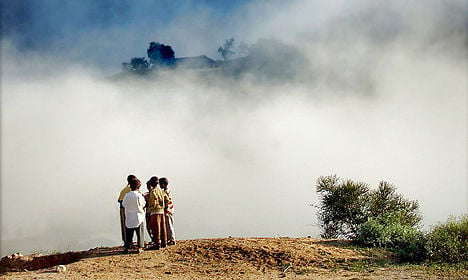The Danish Immigration Service (Udlændingestyrelsen – DIS) said on Tuesday that it has changed its mind about the conclusions of a much-criticised report on Eritrea.
After the report was criticised by its only named source, Professor Gaim Kibreab of the London South Bank University, as well as others familiar with the situation in Eritrea, DIS now says that sending deserters of Eritrea’s compulsory military service back home does present a danger after all.
In a press release sent late on Tuesday, DIS said that the reaction to its report “raises doubts about whether there are risks to people returning to Eritrea after illegally leaving the country and avoiding national service”.
“DIS therefore finds that after concrete and individual assessments, there can be a basis for granting asylum to people seeking it under this motivation [avoiding compulsory national service, ed.],” the statement continued.
Using mostly anonymous sources, DIS’s report called into question previous claims that Eritreans can face retribution or even possible death if they flee the country. The fact finding report instead says that Eritreans who have tried to avoid military service can merely sign a repentance letter and agree to pay an extra two percent ‘Diaspora tax’.
The report thus recommended that Denmark only provide asylum to Eritreans who can show that they face a personal threat.
But with the change in course announced on Tuesday, DIS now says that Eritreans are likely to be granted asylum in Denmark even if they aren’t personally persecuted, concluding that the agency now “expects to grant asylum in many cases”.
Although it did an about-turn on the conclusions of its report, DIS’s press release also calls into question the legitimacy of Kibreab’s complaints.
Kibreab stepped forward shortly after the report’s publication to say that he felt “betrayed” by DIS’s “heavily edited” report that “completely ignored facts and just hand-plucked certain information.”
But DIS released a lengthy summary of the agency’s mail correspondence with Kibreab that indicates that he repeatedly failed to provide “any detailed and concrete depictions of exactly which statements in the published report”. DIS’s summary of the correspondence can be found here (in English, scroll down).
On the same day DIS presented its about-face on the report’s conclusions, an agency employee who has taken sick leave since the report’s release called it a massive failure.
“It is a torpedo fired directly into the work we have done over the past 20 years to build up trust and transparency,” Jens Weise Olesen told TV2 News.



 Please whitelist us to continue reading.
Please whitelist us to continue reading.
Member comments